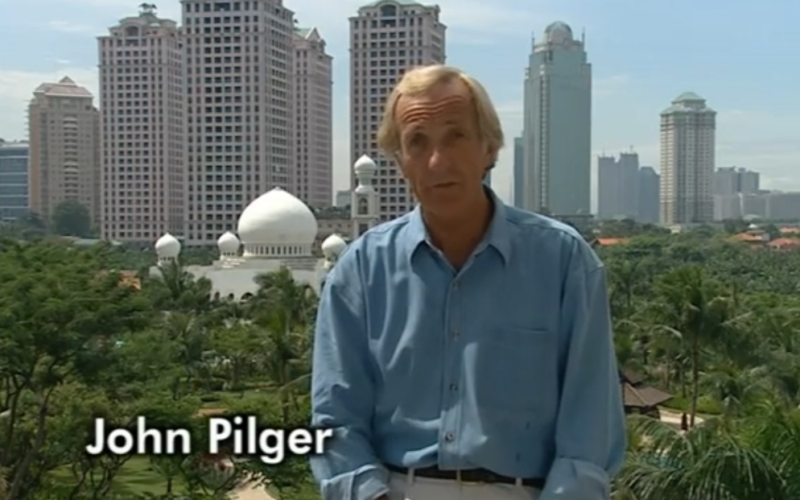Originally From: https://johnpilger.com/the-new-rulers-of-the-world/
An analysis of a new global economy run by government backed multinational companies who are further widening the gulf between the rich and the poor.
“A small group of powerful individuals are now richer than most of the population of Africa. Just 200 giant corporations dominate a quarter of the world’s economic activity… The famous brands of almost everything from running shoes to baby clothes are now made in very poor countries with cheap labour, at times bordering on a form of slave labour.”
Globalisation had become a topical subject by the time The New Rulers of the World was screened. More than a million people opposed to the increasing gap between rich and poor, at a time when the control of resources was becoming centred in fewer and fewer hands, had staged a series of anti-capitalist demonstrations.
John Pilger’s documentary on globalisation brings together several of the themes that run throughout his work – the way in which superpowers use small countries as pawns in their global strategies, the courting of dictators by the West to open the doors to valuable resources and the exploitation of workers in those countries to provide riches in which they do not share.
The New Rulers of the World puts the story of multinationals’ global domination into a political context and demonstrates how the West has increased its stranglehold on poor countries by using the might of the IMF, World Bank and World Trade Organization to control their economies.
Through secret filming, Pilger shows how cheap labour in an Indonesian sweatshop produces goods such as Nike, Adidas, Gap and Reebok running shoes that are sold for up to 250 times the amount received by workers, about 72p a day. Almost 70 million Indonesians live in extreme poverty, many in labour camps housing the workers, where children are under-nourished and prone to disease. Inside the sweatshops, mostly young women are crowded together under the glare of strip lighting in temperatures of up to 40°C, some doing 24-hour shifts.
Observing the parallel between modern-day globalisation and old-world imperialism, Pilger recalls that Indonesia has been “plundered by the West for hundreds of years”. Globalisation in Asia began in Indonesia, where Western governments backed dictator General Suharto after he seized power in the mid-1960s. “Within a year of the bloodbath,” says Pilger, “Indonesia’s economy was effectively redesigned in America, giving the West access to vast mineral wealth, markets and cheap labour – what President Nixon called the greatest prize in Asia.” In 1997, the World Bank had called the country a “model pupil” of the global economy.
The IMF’s first deputy managing director, Stanley Fischer, tells Pilger that complete debt cancellation is not the only means of relieving poverty around the world – governments should be willing to integrate with Western economies. Meanwhle, Barry Coates, of the World Development Movement, suggests that consumers should put pressure on retailers and manufacturers to provide information on the source of products and give assurances about the conditions under which they are produced.
Pilger concludes with his own prescription: “Why not abolish the World Bank and the IMF and the World Trade Organization, and replace them with genuine trade and development institutions that are democratically accountable? And why not cancel a debt that condemns nations like Indonesia to poverty and disease?”
The New Rulers of the World (Carlton Television), ITV1, 18 July 2001
Director: Alan Lowery; producer: John Pilger (54 mins
Awards: Gran Prix Leonardo Award, 2003; Certificate of Merit, Chicago International Television Awards, 2003.
Republished From: https://johnpilger.com/the-new-rulers-of-the-world/

